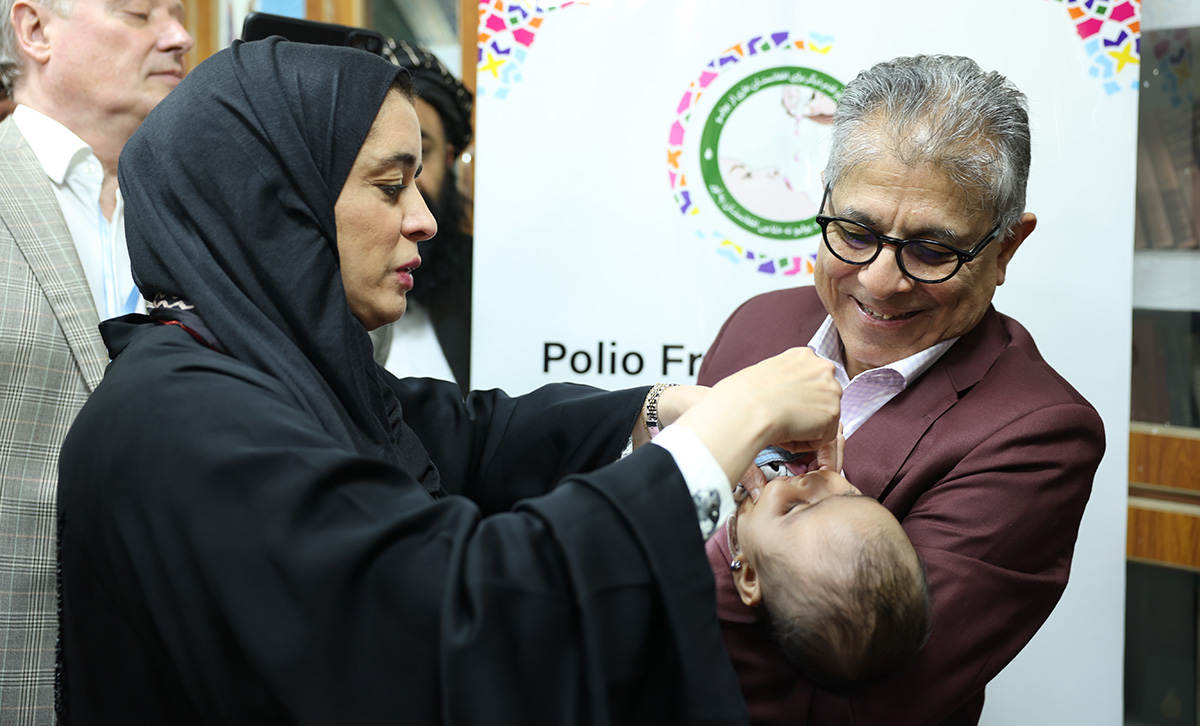
12 May 2024, Kabul, Afghanistan – WHO Regional Director for the Eastern Mediterranean Dr Hanan Balkhy recently wrapped up a 3-day visit to Kabul, Afghanistan, following her high-level mission to neighbouring Pakistan with the Chair of the Polio Oversight Board and partners from the Global Polio Eradication Initiative (GPEI).
In Afghanistan, Dr Balkhy met with the de facto authorities and health partners in Kabul to discuss critical health issues, focusing on promoting equitable access to health care; empowering girls and women; expanding health workforce education; addressing substance use disorders; and eradicating polio.
As one of the 2 countries in which wild poliovirus remains endemic, Afghanistan has made incremental progress to end transmission since resuming polio immunization campaigns in November 2021. During her visit, Dr Balkhy, together with UNICEF Regional Director for South Asia Mr Sanjay Wijesekera, engaged with partners and stakeholders to underscore WHO and GPEI’s commitment to close the remaining gaps for polio eradication in the country and end polio for good.
With just 3 polio cases reported in 2024 and the virus restricted to the country’s East and South regions, Afghanistan currently has its best chance to eradicate polio. The recent announcement by top leadership to reinstate house-to-house polio vaccination activities in the South region is a key development that will enable the polio eradication programme to reach more children.
Dr Balkhy stressed WHO’s commitment to polio eradication in Afghanistan and Pakistan as a key regional public health priority. She reiterated her commitment to convene a health dialogue between Afghanistan and Pakistan, a proposal that the Government of Pakistan embraced. This dialogue will address stronger collaboration on polio eradication, as well as broader health needs of both countries.
Dr Balkhy also visited WHO-supported health facilities in Afghanistan: Indira Gandhi Children’s Hospital, one of 130 nutrition stabilization centres supported by WHO in Afghanistan; and Kabul’s 100-bed drug addiction treatment centre (DATC) for women and children, one of 7 rehabilitation centres in the country that receive vital support from WHO and partners. In the DATC ward for addicted children, Dr Balkhy had an emotional encounter with several young girls who told her stories of their struggles and their journeys to recovery.
Dr Balkhy engaged with patients and health workers at the health facilities. She stressed the critical importance of enhancing the capacities of medical staff and improving access to health services for vulnerable populations across Afghanistan.
Recognizing that women’s education significantly influences the health and overall well-being of the population, Dr Balkhy reiterated her commitment to advocate for female education and rights as part of overall efforts to advance Afghanistan’s health agenda.
“WHO has played a fundamental role in polio eradication efforts in Afghanistan, as well as responding to essential, life-saving needs across the country,” said Dr Balkhy. “In line with my regional priorities, we will continue to work with the de facto health authorities and our partners to expand equitable access to quality health care, strengthen the capacity of the health workforce – especially women – and address substance abuse.”
The humanitarian crisis in Afghanistan is one of the world’s most severe, with some of the highest levels of food insecurity globally. Drought, displacement and poverty persist, while natural disasters exacerbate the situation. Humanitarian needs have surged, with the number of people in need rising from 18.4 million in mid-2021 to about 23.7 million in 2024. About 17.9 million of these people in need urgently require health assistance.




